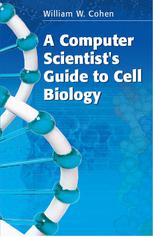

Most ebook files are in PDF format, so you can easily read them using various software such as Foxit Reader or directly on the Google Chrome browser.
Some ebook files are released by publishers in other formats such as .awz, .mobi, .epub, .fb2, etc. You may need to install specific software to read these formats on mobile/PC, such as Calibre.
Please read the tutorial at this link: https://ebookbell.com/faq
We offer FREE conversion to the popular formats you request; however, this may take some time. Therefore, right after payment, please email us, and we will try to provide the service as quickly as possible.
For some exceptional file formats or broken links (if any), please refrain from opening any disputes. Instead, email us first, and we will try to assist within a maximum of 6 hours.
EbookBell Team

4.8
44 reviewsThis practical guide provides a succinct treatment of the general concepts of cell biology, furnishing the computer scientist with the tools necessary to read and understand current literature in the field.
The book explores three different facets of biology: biological systems, experimental methods, and language and nomenclature. After a brief introduction to cell biology, the text focuses on the principles behind the most-widely used experimental procedures and mechanisms, relating them to well-understood concepts in computer science.
The presentation of the material has been prepared for the reader’s quick grasp of the topic: comments on nomenclature and background notes can be ascertained at a glance, and essential vocabulary is boldfaced throughout the text for easy identification.
Computer science researchers, professionals and computer science students will find this an incomparable resource and an excellent starting point for a more comprehensive examination of cell biology.
"This concise book is an excellent introduction for computer scientists to the exciting revolution under way in molecular biology. It provides lucid, high-level descriptions of the fundamental molecular mechanisms of life, and discusses the computational principles involved. I wish this little gem was available when I was ‘learning the ropes’– it would have been my first choice of reading material."
--Roni Rosenfeld, Carnegie Mellon University